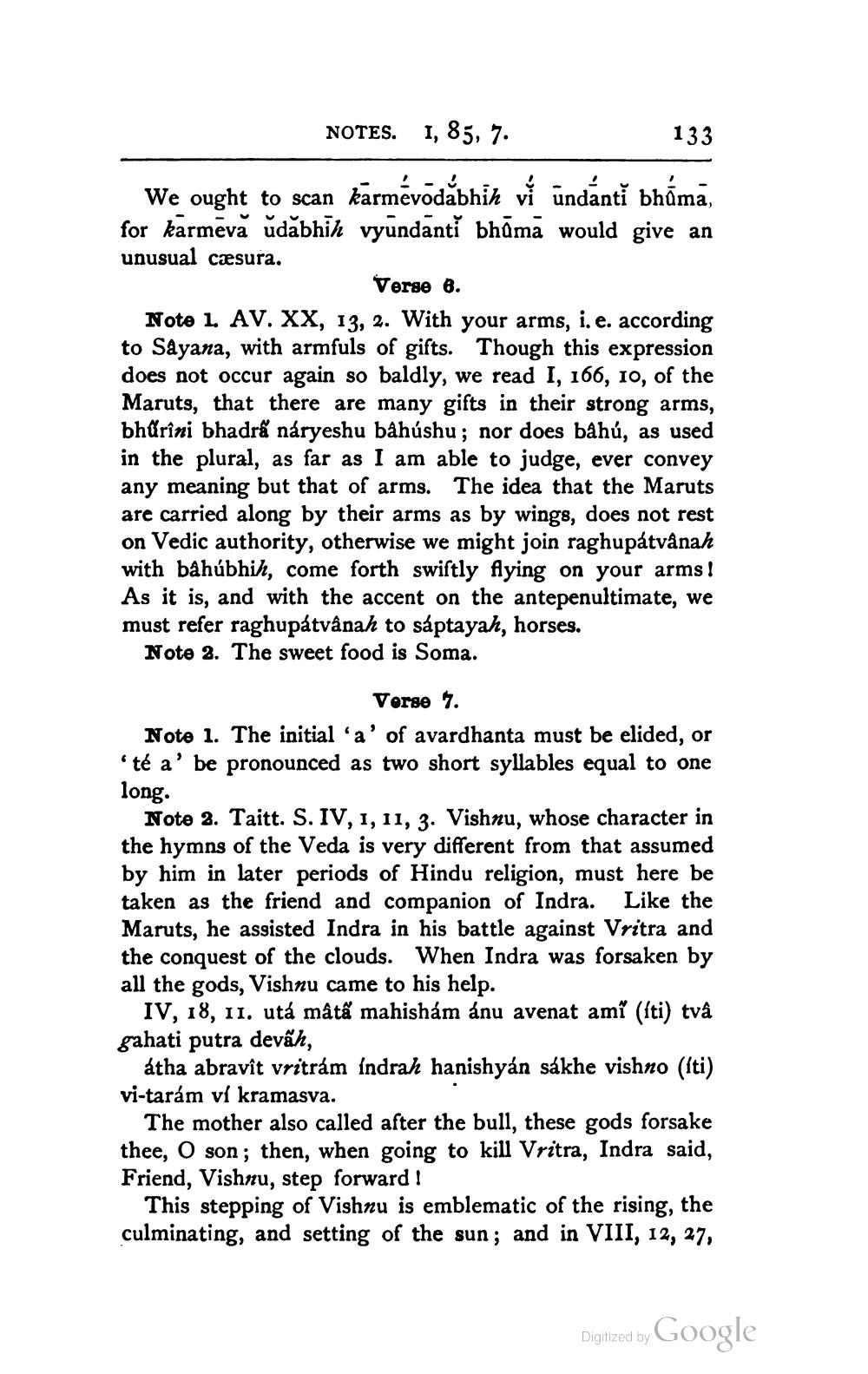________________
NOTES. 1, 85, 7.
133
We ought to scan karmévodábhih ví undánti bhấma, for karmevă ūdăbhih vyundānti bhāmā would give an unusual cæsura.
Verse 6. Note 1. AV. XX, 13, 2. With your arms, i.e. according to Sayana, with armfuls of gifts. Though this expression does not occur again so baldly, we read I, 166, 10, of the Maruts, that there are many gifts in their strong arms, bhŲrini bhadrâ náryeshu båhúshu; nor does båhú, as used in the plural, as far as I am able to judge, ever convey any meaning but that of arms. The idea that the Maruts are carried along by their arms as by wings, does not rest on Vedic authority, otherwise we might join raghupatvanah with bahúbhih, come forth swiftly flying on your arms! As it is, and with the accent on the antepenultimate, we must refer raghupatvanah to saptayah, horses.
Note 2. The sweet food is Soma.
Verse 7. Note 1. The initial 'a' of avardhanta must be elided, or té a' be pronounced as two short syllables equal to one
long.
Note 2. Taitt. S. IV, 1, 11, 3. Vishnu, whose character in the hymns of the Veda is very different from that assumed by him in later periods of Hindu religion, must here be taken as the friend and companion of Indra. Like the Maruts, he assisted Indra in his battle against Vritra and the conquest of the clouds. When Indra was forsaken by all the gods, Vishnu came to his help.
IV, 18, 11. utá mâtă mahishảm ánu avenat amî (sti) tva gahati putra devah,
átha abravît vritrám indrah hanishyán sákhe vishno (Iti) vi-tarám ví kramasva.
The mother also called after the bull, these gods forsake thee, O son; then, when going to kill Vritra, Indra said, Friend, Vishnu, step forward !
This stepping of Vishnu is emblematic of the rising, the culminating, and setting of the sun, and in VIII, 12, 27,
Digitized by
Digized by Google




